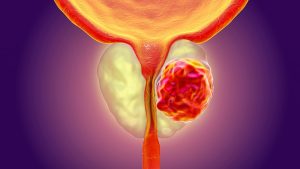
What is the Best Treatment for Pituitary Tumors?
Pituitary Tumors
The pituitary gland, a tiny but essential organ at the base of the brain that regulates hormone production, can develop abnormal growths called pituitary tumors. The development of tumors in this gland can alter hormone levels and impact a number of body processes.
The type, size, hormonal activity, and general health of the patient all influence how pituitary tumors are treated. This article explains everything from diagnosis to advanced treatment options.
Types of Pituitary Tumors
1. Functioning Tumors (Hormone-Producing)
These tumors produce excess hormones and cause specific conditions:
- Prolactinomas: Lead to missed periods, infertility, and galactorrhea.
- GH-Secreting Tumors: Lead to acromegaly in adults and gigantism in children.
- ACTH-Secreting Tumors: Cause weight gain, hypertension, and moon face, which are symptoms of Cushing’s disease.
- TSH-secreting tumors: Lead to weight loss, hyperthyroidism, increased heart rate (tachycardia), and heat intolerance.
2. Non-Functioning Tumors (Non-Hormonal)
These tumors don’t secrete hormones but can compress nearby structures, causing:
- Headaches
- Vision loss
- Neurological disturbances
Common Symptoms of Pituitary Tumors
The symptoms vary depending on the tumor type and its effects on hormone production and surrounding tissues. Common symptoms include
- Continuous headaches
- Vision issues (tunnel vision, blurry vision)
- Weakness or fatigue
- Weight gain or loss
- Women’s irregular periods
- Male erectile dysfunction
- Mood fluctuations and anxiety
- Abnormal lactation
- Growth abnormalities (especially in children)
How Pituitary Tumors Are Diagnosed
1. Medical Evaluation: A thorough history and physical examination aid in the identification of neurological or hormonal symptoms.
2. Hormonal Blood Tests: Measure levels of various pituitary hormones (e.g., prolactin, growth hormone (GH), ACTH, TSH, FSH, LH, and related target gland hormones like cortisol, thyroid hormones, and sex hormones) to identify signs of hormone excess or deficiency.
3. Imaging Studies
- MRI: Gold standard for pituitary tumor imaging.
- CT scan: Used if MRI isn’t possible.
4. Vision Tests: Important if tumors compress the optic nerves.
Treatment Options for Pituitary Tumors
1. Medications
Medications are typically first-line treatments for hormone-secreting tumors.
- Dopamine Agonists (e.g., bromocriptine, cabergoline): Shrink prolactinomas.
- Somatostatin Analogues (e.g., octreotide, lanreotide): Used in acromegaly.
- GH Receptor Antagonists (pegvisomant): Block GH activity in resistant cases.
- Steroid Inhibitors Used to lower cortisol production in Cushing’s disease, often as a temporary measure before surgery or radiation or for long-term management in some cases (e.g., ketoconazole, metyrapone, or osilodrostat).
3. Surgery
Indicated for large tumors or those unresponsive to medication.
- Transsphenoidal Surgery: Minimally invasive; performed via nasal passage.
- Transcranial Surgery: Required for large or inaccessible tumors.
3. Radiation Therapy
Used when surgery isn’t an option or for residual tumors.
- External Beam Radiotherapy (EBRT): Given in multiple small doses over several weeks
- Stereotactic radiosurgery (Gamma Knife and CyberKnife)
4. Observation (Watchful Waiting):
Small, non-functional tumors can simply be monitored over time using MRI and blood tests.
5. Hormone Replacement Therapy
Necessary if pituitary function is impaired post-treatment:
- Thyroid hormone
- Cortisol
- Growth hormone
- Estrogen/testosterone
Managing Side Effects of Treatment
Medications
- Dopamine Agonists: May cause nausea or dizziness.
- Somatostatin Analogues: Can lead to digestive issues or gallstones.
- Pegvisomant: Requires liver monitoring.
Surgery side effects: Nasal congestion, temporary diabetes insipidus, or rare complications like bleeding and infection.
Radiation: Common side effects include chronic hypopituitarism (requiring hormone replacement) and fatigue or localized hair loss based on the treatment field.
Long-Term Care and Follow-Up
- Regular MRI scans are performed to monitor tumor regrowth.
- Routine blood tests to determine hormone balance.
- Hormone therapy is required for deficiencies.
- Endocrinologist appointments for chronic conditions.
Psychological and Lifestyle Support
- Counseling and support groups can help with emotional recovery.
- Encourage healthy behaviors, medication adherence, and symptom awareness.
- Educate patients about early warning signs and emergency indicators.
Latest Advances in Pituitary Tumor Treatment
- Targeted Therapies: Drugs that inhibit specific growth pathways in tumor cells.
- Immunotherapy: New treatments aim to train the immune system to eliminate tumor cells.
- Gene Therapy: Experiments to correct mutations that cause tumors.
- Advanced Surgery: Robotics and advanced imaging for more effective tumor removal.
Conclusion
Although pituitary tumors can be complicated, the majority of cases can be treated with early detection and a customized treatment plan. A multidisciplinary strategy that combines hormone support, surgery, and medical therapy yields the best results. With rapid advancements in medicine, future treatment options are becoming more precise, effective, and patient-focused.
Frequently Asked Questions (FAQs)
What is the most common treatment for pituitary tumors?
Medication, especially dopamine agonists, is the first-line treatment for prolactinomas. Surgery is often used for non-functioning or large tumors.
Can pituitary tumors be completely cured?
Yes, many can be cured, especially if diagnosed early and treated effectively. Long-term monitoring is still essential.
Is pituitary tumor surgery risky?
Modern transsphenoidal surgery is minimally invasive and generally safe. Risks include nasal symptoms or hormone imbalance.
Do all pituitary tumors need treatment?
No. Small, non-functioning tumors without symptoms may only require regular monitoring.
What are the signs of hormone imbalance due to pituitary tumors?
Irregular periods, mood swings, weight gain, hair changes, or sexual dysfunction are common signs.





